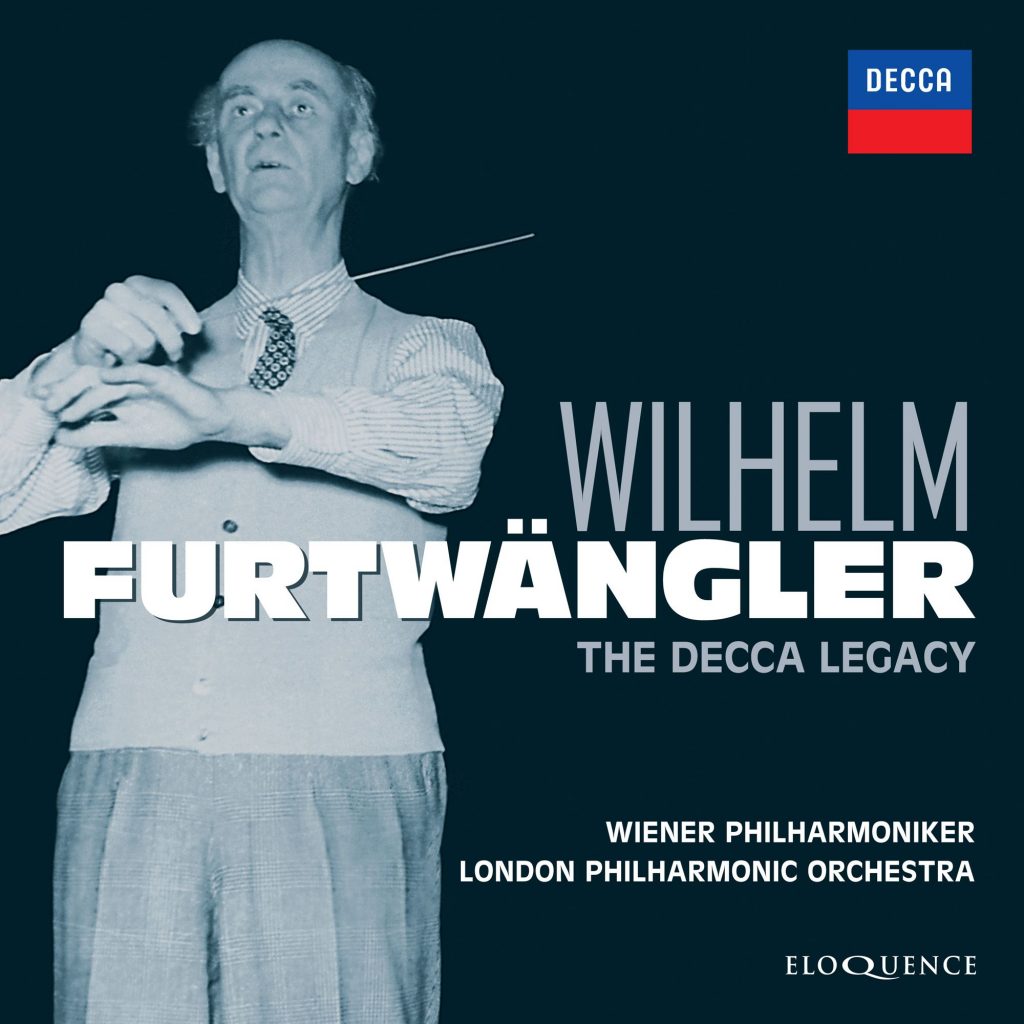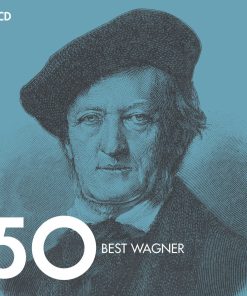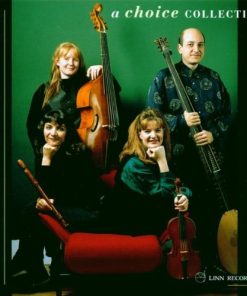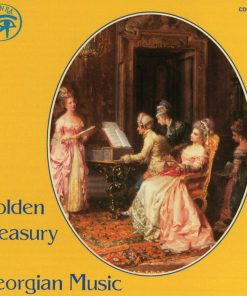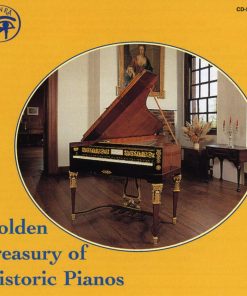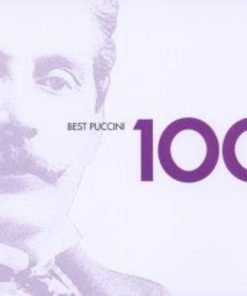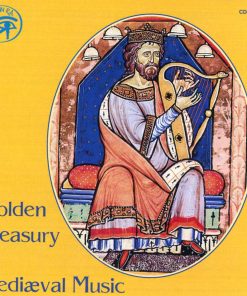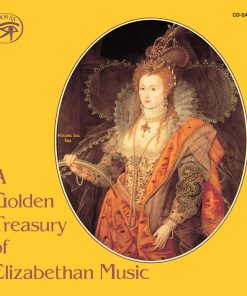Wilhelm Furtwangler: The Decca Recordings (3 CDs) DECCA
$ 18,99 $ 11,39

Two legendary studio recordings and a 1951 concert from Munich: the small but precious Decca legacy of the 20th century’s greatest recreative conductor, Wilhelm Furtwängler.
While the performances of Wilhelm Furtwängler issued by Decca have been made available in small and large compilations, they have never been issued in this convenient format. They include a 1948 studio account of Brahms’s Second Symphony with the London Philharmonic, a Vienna Philharmonic studio recording of Franck’s Symphony from 1951, and finally a complete concert which the VPO gave with Furtwängler in Munich on tour, playing Beethoven’s Coriolan Overture, Schumann’s First and Bruckner’s Fourth Symphonies.
Each recording is precious in its way. First issued by Decca in its Eclipse LP series, the Bruckner makes a fascinating comparison with a performance given by the VPO and Furtwängler a week earlier in Stuttgart, widely available, but the Schumann First is unique within the conductor’s discography: majestic and superbly built, as one would expect, but not without the fiery impetus belonging to a work which the composer had written in less than a week.
While Furtwängler was more at home in concert than the studio, he knew and appreciated the value of recordings, and cultivated good relationships with broadcast engineers in Berlin. The Decca team found him harder to deal with, but the Brahms Second from Kingsway Hall remains a characteristic example of his art, more muted than his other readings but flowing and lyrical throughout. The Franck, meanwhile, is even more marked by inspirational rubato, a quality now appreciated once again in performances of late-Romantic music.
With a new essay by Rob Cowan on the context and qualities of these superb interpretations, this new Eloquence set is a definitive collection of Furtwängler’s Decca legacy.

‘Meditation, philosophy, the interior life, a quieter tonal fire and a milder, smaller flame than we sometimes feel – these are the qualities in the performance and recording which can best be felt and enjoyed.’ Gramophone, January 1952 (Brahms)
‘A stately ceremonial whose jubilation is massive and startling in the Furtwängler conception of a symphony we consider light in a more customary presentation.’ High Fidelity, Summer 1952 (Brahms)
‘Furtwängler lives, obviously, in a different time-scale from the rest of us … Technically faultless, this disc has depth, clarity and brilliance over and above that of the competing versions … listeners whose time-scale coincides with Furtwängler’s will certainly prefer it to any other.’ Gramophone, April 1954 (Franck)
‘The second movement is well-paced, and is clearly and tastefully interpreted … praise is due the orchestra for some splendid playing, which the engineers have captured with splendid fidelity and spaciousness.’ High Fidelity, August 1954 (Franck)
‘A tremendous performance of the Coriolan – one of the greatest that even Furtwangler can have given … His way [with Schumann’s First] was to bring all the power and intensity to bear on the music that he brought to bear on Beethoven … a performance of this stature makes us think about Schumann all over again.’ Gramophone, March 1973
‘From the Scherzo through the finale, there is a sensation of moving forward and reaching out, of being vividly propelled towards the Symphony’s final, blazing pages … no doubt of Furtwängler’s profound and individual insights into this score.’ John Ardoin, The Furtwängler Record (Bruckner)
‘The First is particularly revelatory, for Furtwängler casts it in a more vivid and Brahmsian mould than usual.’ John Ardoin, The Furtwängler Record (Schumann)
‘An orchestrally fallible performance that nonetheless moves, glows and exults.’ Gramophone, December 2019 (Brahms)

CD 1
LUDWIG VAN BEETHOVEN (1770–1827)
1 Coriolan Overture, Op. 62
Wiener Philharmoniker
JOHANNES BRAHMS (1833–1897)
2-5 Symphony No. 2 in D major, Op. 73
London Philharmonic Orchestra
CD 2
ROBERT SCHUMANN (1810–1855)
1-4 Symphony No. 1 in B flat major, Op. 38 ‘Spring’
CÉSAR FRANCK (1822–1890)
5-7 Symphony in D minor
CD 3
ANTON BRUCKNER (1824–1896)
1-4 Symphony No. 4 in E flat major ‘Romantic’
Wiener Philharmoniker
WILHELM FURTWÄNGLER
MONO RECORDINGS
Fast Shipping and Professional Packing
Due to our longstanding partnership with UPS FedEx DHL and other leading international carriers, we are able to provide a range of shipping options. Our warehouse staff are highly trained to pack your goods exactly according to the specifications that we supply. Your goods will undergo a thorough examination and will be safely packaged prior to being sent out. Everyday we deliver hundreds of packages to our customers from all over the world. This is an indication of our dedication to being the largest online retailer worldwide. Warehouses and distribution centers can be located in Europe as well as the USA.
Orders with more than 1 item are assigned processing periods for each item.
Before shipment, all ordered products will be thoroughly inspected. Today, most orders will be shipped within 48 hours. The estimated delivery time is between 3-7 days.
Returns
The stock is constantly changing. It's not entirely managed by us since we are involved with multiple parties such as the factory and our storage. The actual stock can fluctuate at any time. Please understand it may happen that your order will be out of stock when the order is placed.
Our policy is valid for 30 days. If you haven't received your product within 30 days, we're not able to issue either a return or exchange.
You are able to return a product if it is unused and in the same condition when you received it. It must also still remain in the original packaging.
Related products
MUSIC CDS
MUSIC CDS
MUSIC CDS
MUSIC CDS
MUSIC CDS
MUSIC CDS
MUSIC CDS
MUSIC CDS
MUSIC CDS
MUSIC CDS
